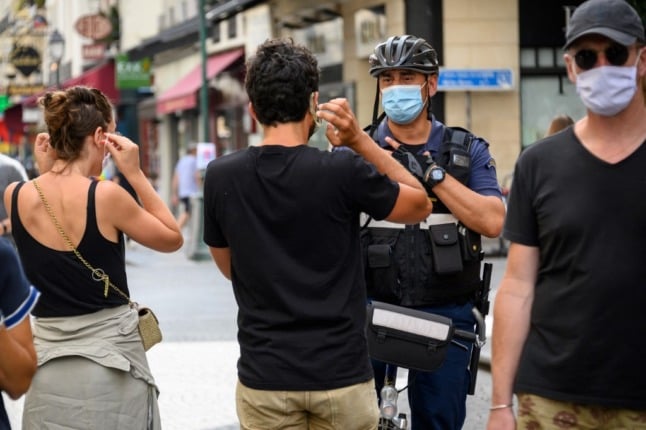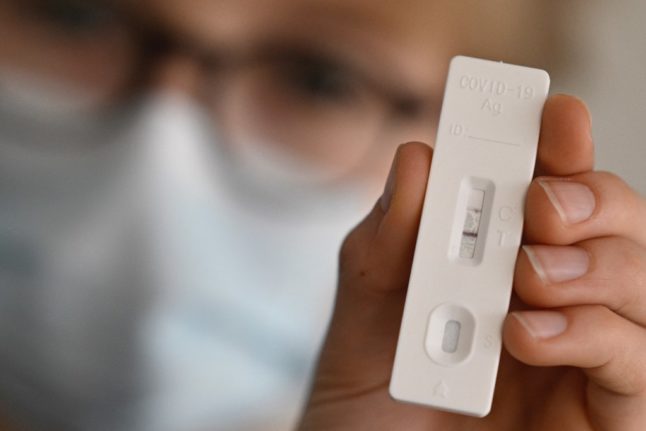The mandate applied from Friday, December 31st, to everyone over the age of 11 except those inside vehicles, cyclists, users of two-wheeled transport like scooters and those doing sport, Paris police HQ said in a statement.
Police justified the measure saying “people intermingle in Paris constantly and gatherings or crowds are numerous”.
Patrols would be stepped up in busy areas to enforce the new rule, police said and those who flouted the law could face a €135 fine.
Although the national rules stipulate face masks only in indoor public spaces and certain outdoor venues such as sports stadiums and markets, many local authorities have brought in their own rules on face masks outdoors.
Paris joined a long list of areas – including many ski resorts – where local authorities have made masks mandatory outdoors as well as indoors.
The greater Paris areas of Seine-Saint-Denis, Hauts-de-Seine, Val-de-Marne, Val-d’Oise and Seine-et-Marne have also reinstated mask rules in outdoor areas.
Paris police also announced extra restrictions around the New Year weekend.
- All bars, including those with a late licence, must close by 2am on January 1st and 2nd
- The consumption of alcohol in traditionally busy public areas – including the banks of the Seine and Ile de la Cité – is banned between 6pm on December 31st and 6am on January 1st
- Dancing is prohibited in bars and cafés (this has actually already been announced by the government but was reiterated by Paris police). Nightclubs are closed throughout the country for at least three weeks
France on Wednesday reported a new record-high daily Covid-19 case total of 208,000 as Omicron drives infections up after Christmas. Paris has seen soaring infection rates in recent weeks with the incidence rate passing 2,000 cases per 100,000.
“I wouldn’t call Omicron a wave anymore… I would call it a tidal wave,” said French Health Minister Olivier Véran.
The government has announced new restrictions including an extension on the closure of nightclubs and encouraging more remote working.
But it has so far shied away from mass closures or lockdowns seen in other EU countries such as the Netherlands.



 Please whitelist us to continue reading.
Please whitelist us to continue reading.
Please tell us if any other cities impose the same rules, we don’t all live in Paris 😉
Good point
Hello all. Most major cities (Marseille, Lyon, Toulouse etc.) will follow Paris BUT if there are any specific restrictions they will be posted on bars, restaurants etc. no dancing is allowed anywhere. No fireworks are happening. Imagine last year. A bit similar.
ask me any questions since I teach French Society, French Culture and read so many newspapers. http://www.frenchwithsimone.com
I had a trip planned for February. I have the Green pass from my visit in October with the booster on the pass. My 2 friends that are coming with me have all 3 shots BUT I the green pass site to USA is closed. Anyone know what the new protocol is now ? Can they use their Covid cards to enter places ? In October Covid cards were sufficient.
Thank you if anyone can answer.
Merci
Amy
February is in two months. Things change rapidly. Check 3 days in advance the French Consulate website in your area. Protocols are rapidly changing. Two choices : Omicron might be gone OR we have a new variant. If you buy any airline ticket, make sure there is a GOOD cancellation policy so you can postpone or cancel without fees or loss of money.
ask me anything through my website http://www.frenchwithsimone.com